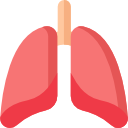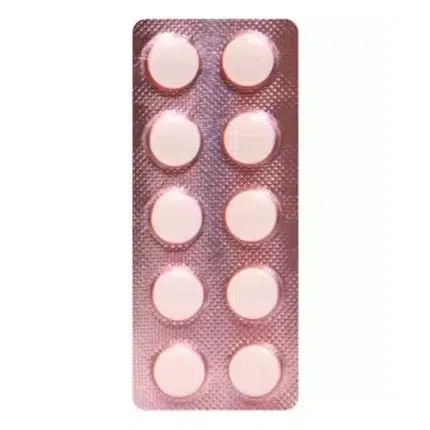Introduction to Pamserine 250mg Tablet
Pamserine 250mg Tablet contains cycloserine, an antibiotic used to treat tuberculosis (TB) alongside other medications. TB is a bacterial infection that primarily affects the lungs. Myser is also used for treating urinary tract infections (UTIs). Notify your doctor if you have any allergies to the ingredients in this capsule, as it may contain color compounds that could trigger allergic reactions. Be sure to inform your doctor about any prescribed or over-the-counter medications you are taking and maintain a balanced diet while on this treatment, as this can assist in adjusting the dose or treatment approach based on your medical history.
Elderly patients, especially those with kidney issues, should take Pamserine 250mg Tablet with caution, as they may require dose adjustments. Inform your healthcare provider if you have porphyria (a condition affecting red blood cells), or if you are undergoing psychiatric treatment or have a history of seizures before starting this medication. Consult your doctor if you are pregnant, planning to become pregnant, or breastfeeding.
Uses of Pamserine 250mg Tablet
- Tuberculosis (TB)
- Urinary tract infection
Therapeutic Effects of Pamserine 250mg Tablet
Pamserine 250mg Tablet
Myser 250mg capsule and D-alanine have similar structures; hence, they inhibit the alanine racemase enzyme and stop bacterial cell wall synthesis. Thereby, it prevents the growth of bacteria by inhibiting the cell wall synthesis.
Interaction of Pamserine 250mg Tablet with other drugs
Inform your doctor about any prescribed medications, over-the-counter medicines, nutritional or vitamin supplements, and herbal products you take or have taken before the treatment. Certain medications may interact with Pamserine 250mg Tablet and can cause undesirable side effects.
More Information about Pamserine 250mg Tablet
- Store Pamserine 250mg Tablet at 25˚C
- Keep children away from the sight and reach of this medication.
How to consume Pamserine 250mg Tablet
Take Pamserine 250mg Tablet as your physician advises. Swallow the tablets whole and intact. This capsule should be taken with food. Your physician will decide the correct dosage and duration based on age, body weight, and disease condition. Only stop taking the medicine if your doctor advises you to stop.
Safety Advices

Pregnancy
It is unknown whether capsules are harmful to the unborn baby. Notify your healthcare professional if you are pregnant or planning to have a baby think you may be pregnant.

Breast Feeding
Before consuming the capsule capsule and starting the treatment, inform your healthcare provider if you are breastfeeding. Consult your doctor for more information.

Lungs
It is unknown whether capsules are safe for patients with lung problems. Inform your physician if you have any lung disease before starting the treatment. Contact your doctor if you experience any lung-related symptoms.

Liver
Individuals with liver disorders should be cautious before taking capsule. Consult your doctor before using the medicine to avoid any undesirable side effects caused by the drug.

Alcohol
Individuals are cautious while consuming alcohol if they are under capsule medication. Consult your doctor before using the medicine.

Driving
It is unknown whether capsule alter driving ability. However, if you experience side effects like tiredness or drowsiness, avoid driving and using machines.
Side Effects
Side effects are unwanted symptoms caused by medicines. Even though all medicines cause side effects, not everyone gets them.
Serious
- Allergic reaction (sudden wheezing, difficulty in breathing, swelling of the eyelids, face or lips, rash or itching)
Common
- Coma
- Headache
- Feeling tired or very sleepy
- Shaking
- Dizziness
- Confusion
- Hallucination
- Loss of memory
- Slurred speech
- Twitching and muscle stiffness
- Anemia
- Abnormalities of liver function
Word of Advice
Kidney patients should be cautious while taking the medicine. If you have alcohol addiction, it is advised to avoid or limit your alcohol to avoid the undesirable side effects caused by the drug. Your doctor will recommend you to monitor your blood count and liver function. Inform your doctor immediately if you have any allergic reaction after using capsule.
FAQs
Q 1. Can I take Pamserine 250mg Tablet if I have a kidney problem?
It is not recommended for kidney patients, especially for the elderly. Speak with your doctor before using the Pamserine 250mg Tablet if you have any liver problems.
Q 2. Can I take Pamserine 250mg Tablet if I'm an alcoholic?
Individuals are cautious while consuming alcohol if they are under Pamserine 250mg Tablet medication. Consult your doctor before using the medicine. If you have alcohol addiction, it is advised to avoid or limit your alcohol to avoid the undesirable side effects caused by the drug.
Q 3. Should I monitor any parameters while taking Pamserine 250mg Tablet?
Your doctor will recommend you to monitor your blood count and liver function while taking Pamserine 250mg Tablet.
Fact Box
Molecule name: Cycloserine
Pharmacological class: Antimycobacterials
Therapeutic class: Antibiotics
Indications:
1. Tuberculosis (TB)
2. Urinary tract infection

 MEDICINES
MEDICINES PATIENT ASSISTANCE PROGRAMS
PATIENT ASSISTANCE PROGRAMS IMPORTED MEDICINES
IMPORTED MEDICINES CONTACT US
CONTACT US Upload
Upload











Reviews
There are no reviews yet.